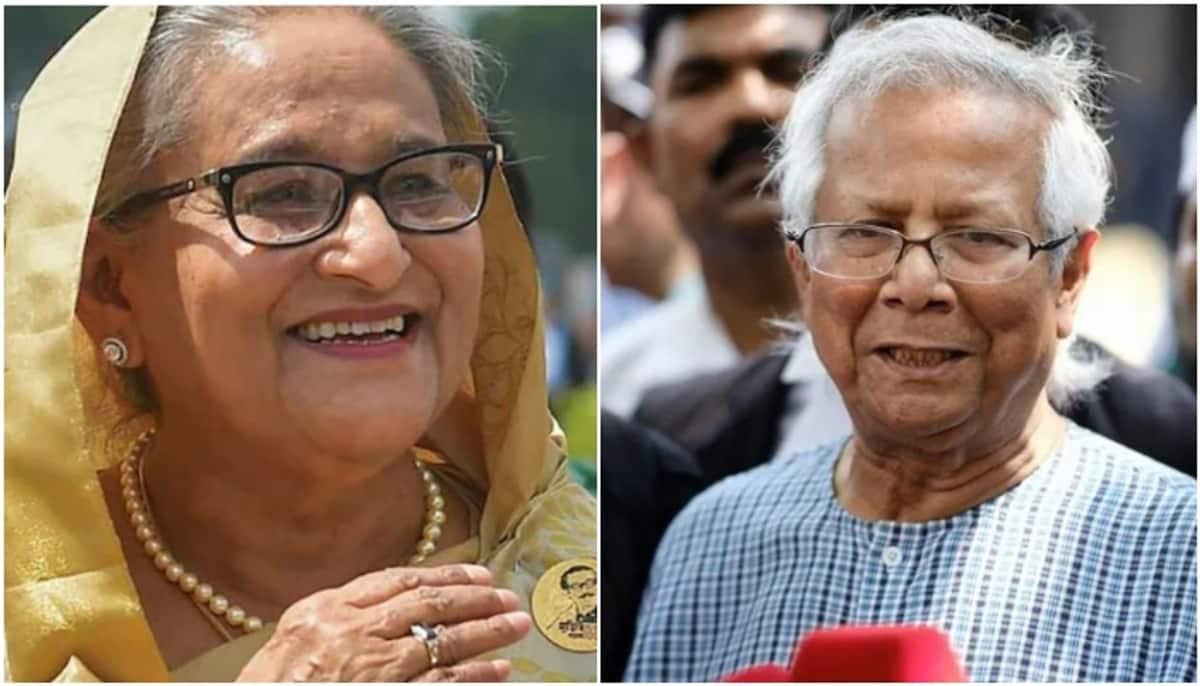
Bangladesh Seeks Sheikh Hasina's Extradition To Put Her On Trial For 'Mass Killings & Crimes Against Humanity'
The protests, which escalated into a nationwide movement, resulted in over 1,000 deaths and hundreds of injuries, according to Nurjahan Begum, the health adviser of the interim government. The unrest culminated in Hasina's flight to India, where she sought refuge after losing power.
Md Tajul Islam, the newly-appointed chief prosecutor of Bangladesh's International Crimes Tribunal (ICT), announced that Dhaka will file a formal application with the tribunal to issue an arrest warrant against Hasina. At a press briefing on the ICT premises in Dhaka, Tajul Islam stated,“We will file an application with the International Crimes Tribunal, when it resumes functions, to issue arrest warrants against all the absconding accused including Sheikh Hasina in connection with the cases filed for mass killing and crimes against humanity.”
The tribunal, which is currently examining evidence from across the country, is handling cases related to the alleged genocide and crimes against humanity that occurred between July 15 and August 5. During this period, Bangladesh was engulfed in student-led protests calling for political reforms and demanding Hasina's resignation. The protests quickly turned violent, leading to a severe crackdown by security forces loyal to the then-Hasina government.
Bangladesh's International Crimes Tribunal began an official probe last month against Sheikh Hasina and nine other individuals for their alleged roles in the violent suppression of the protests. The accusations of genocide and crimes against humanity stem from the deaths and injuries inflicted during the government's efforts to control the unrest.
Chief prosecutor Tajul Islam emphasized the difficulty of gathering evidence in such a large-scale investigation.“Information, documents, and evidence against the accused persons will have to be collected from across the country, and those will have to be compiled, examined, and placed properly before the tribunal, which is very much a challenging and huge task,” he explained.
The interim government, led by Yunus, has made clear its intention to pursue legal action against Hasina. Md Touhid Hossain, the foreign affairs adviser to the interim government, previously stated that they would use all legal avenues to ensure her return to Bangladesh.“If our legal system wants, we will definitely try to bring her back. There is an agreement (with India) and legal processes. It is better not to speculate,” he said.
The diplomatic and legal channels between Bangladesh and India will likely play a crucial role in determining whether the former prime minister can be extradited. As per the terms of the extradition treaty between the two neighboring countries, Bangladesh can formally request India to hand over Hasina to face trial. However, it remains uncertain how the Indian government will respond to such a request, given the political and historical complexities involved.
Legal Disclaimer:
MENAFN provides the
information “as is” without warranty of any kind. We do not accept
any responsibility or liability for the accuracy, content, images,
videos, licenses, completeness, legality, or reliability of the information
contained in this article. If you have any complaints or copyright
issues related to this article, kindly contact the provider above.


















Comments
No comment